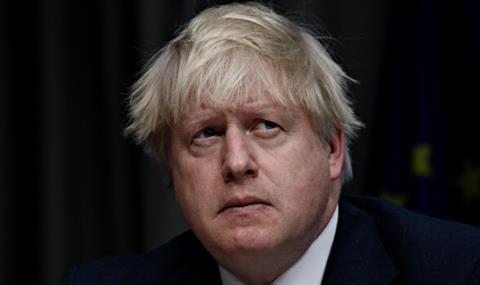
Haulage operators are accusing the Prime Minister of attempting to scapegoat the industry for the petrol pump crisis after failing to heed their warnings of a supply chain crisis months ago.
The industry criticism follows comments made by Boris Johnson on the BBC Andrew Marr Show on Sunday (3 October). Asked what had caused the petrol pump crisis he told Marr that for “decades” the haulage industry “was not investing in the truck stops, not improving conditions, not improving pay.
“We relied on very hard working people who were willing to come in largely from European Accession countries to do that work under those conditions and so at present that is why - that job, with that pay and those conditions, is not currently attractive. What you need to do is make sure that those people now invest in basic equipment such as truck stops and better pay.”
Steve Granite, Abbey Logistics chief executive condemned Johnson’s claims this week. He said: “It is a tactic to deflect the blame onto the sector and it is infuriating.
“Yes, there has been a driver shortage for years but never have we seen food, fuel and construction materials shortages such as we are seeing now.
“The driver shortage is a result of Brexit which lost us over 10,000 drivers, combined with the delays to the HGV driving tests during Covid which lost us another 30,000 drivers and the government’s IR35 tax rule changes which also lost us many European drivers who could no longer operate as limited companies.”
He said raising pay rates was not enough to solve the crisis. “We have increased our pay rates by double digits and brought in better facilities and conditions for our drivers but there are not enough drivers out there to meet demand. We are hiring but retaining drivers is a problem when there is a shortage.
“The government has to put drivers on the Skills Shortage List. They have to accept that their immigration policy since Brexit does not match the needs of the UK economy.”
Both Granite and Lesley O’Brien, partner at Freightlink Europe are among a number of leading industry figures who signed a letter sent by the RHA to the Prime Minister on 23 June warning that the driver shortage crisis was threatening the supply chain and urging Johnson to put HGV drivers on the government’s Skills Shortage List. Johnson has yet to reply to the letter.
O’Brien criticised the Prime Minister’s lack of response but said the letter was not the first time industry had appealed to the government to take urgent action. “I sat at a government round table in March and begged Transport Minister Baroness Vere to put HGV drivers on the Skills Shortage List but she did not listen,” she recalled.
Read more
O’Brien said Vere had insisted that since the UK had voted for Brexit the government was not prepared to allow European drivers to return and had also questioned whether the industry was exaggerating the shortage, which O’Brien said showed the level of regard in which the government holds the industry. Vere had also asked the attendees at the meeting not to refer to the driver shortage as a “crisis”, O’Brien recalled.
Pointing to the government’s recent decision to issue 5,000 temporary HGV driver visas which expire in February she added: “What they have now introduced is too little, too late.”
O’Brien said she would also like to see the government ease the requirement for Driver CPC for those drivers who left the industry at the onset of the pandemic, as a way of encouraging them back, pointing to research by driver agency Driver Require which shows there are over 263,000 UK drivers who have left the industry.
“We have to find ways to entice these drivers back into the industry. Surely that is more effective than issuing 5,000 temporary visas?” said O’Brien.
Turning to the issue of driver pay, Kate Lester, founder and chief executive of Diamond Logistics said: “The logistics industry functions on lean margins. We have no issue with raising pay in the sector as long as the general public understand the cost of this.
"A rise in logistics costs = price increases in shops = inflation = interest rises. So wages will go up but people will feel poorer.”
Harinder Singh, MD of BJS Distribution Storage and Courier said the government’s attitude was a blow to industry morale. “HGV drivers have gone from Hero to Zero thanks to the UK government,” he said.
He condemned the temporary emergency HGV driver visa scheme as "a token gesture to keep face but not solve the problem,” adding: “No one is going to come here for three months.
“Immigration, movement of people – it only happens if people can improve their financial situation. You are not going to leave your family unless it will make you all better off.
Singh said the strategy was ill thought out and uneconomic.
“The government are asking drivers to come from Europe for three months at Christmas – do they not realise it will also be Christmas in Europe for the drivers and their families?
“All we’re doing is costing the haulage family a bigger problem – you’ll end up having to pay a lot more money for the drivers temporarily. The long-term solution has to be immigration from countries struggling financially - not Europe, unless we are giving them long-term visas.
"A three-month visa is not a solution it’s a token gesture at best and at worst a slap in the face to say: ‘We don’t care. Last year you were the heroes, now you’re just zeros.’”













